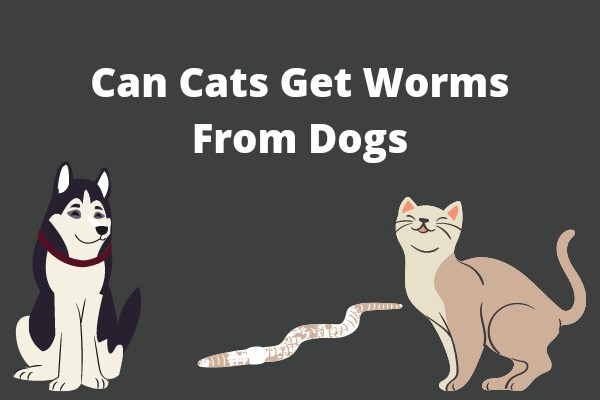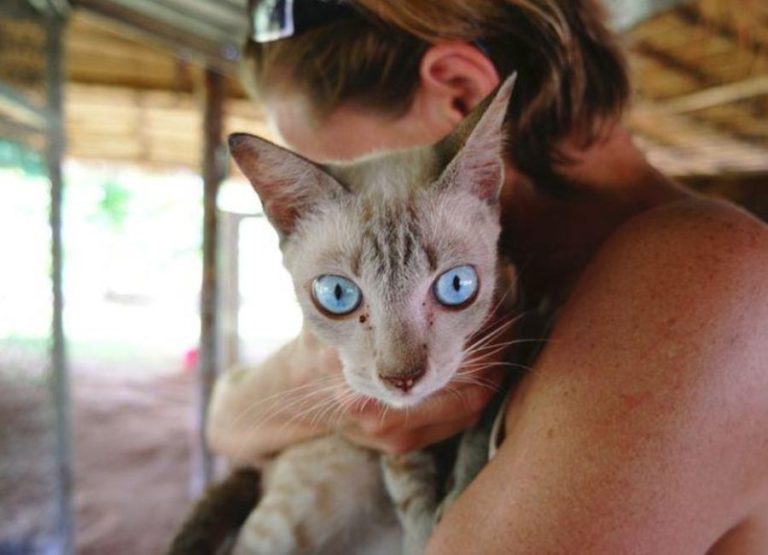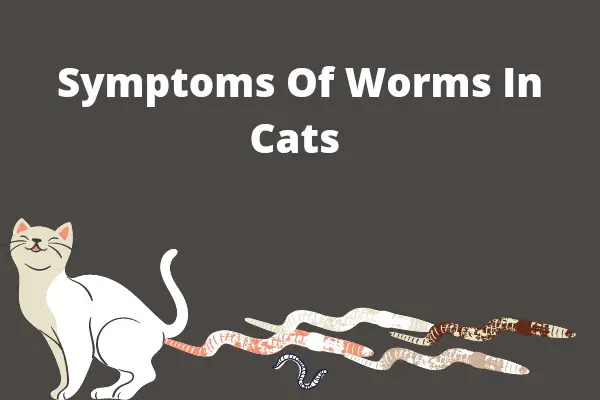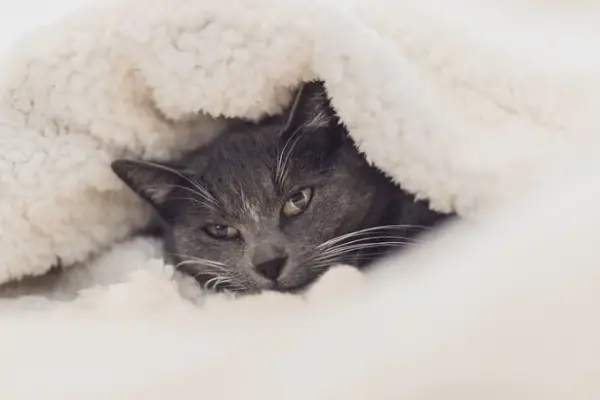7 Tips On What to Feed a Cat with Diarrhea and Vomiting
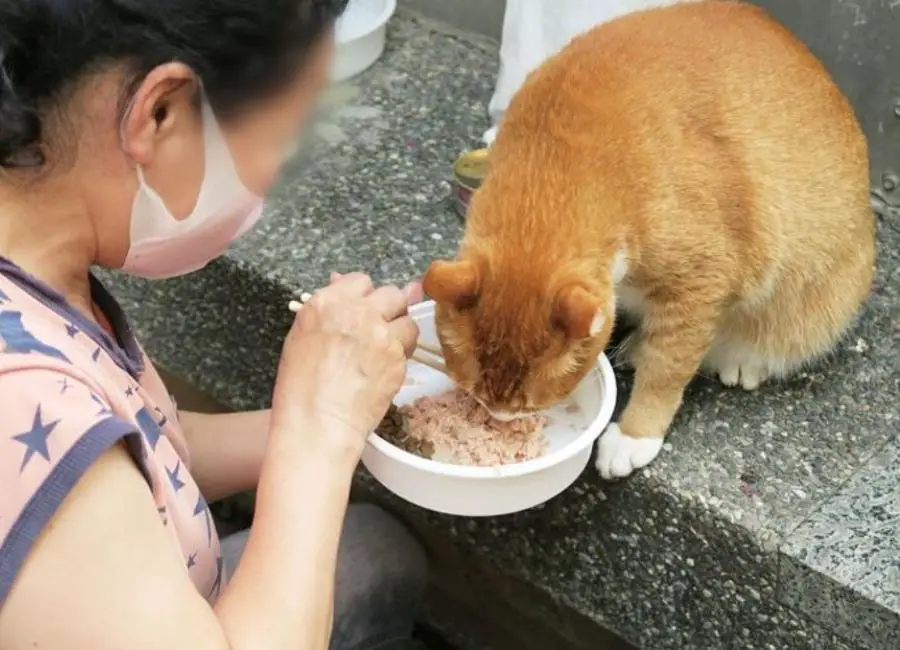
Are you worried about what to feed your cat when it’s suffering from diarrhea and vomiting?
It can be difficult to know what to do in these situations but don’t worry, we’ve got you covered.
In this blog post, we’ll share some tips on what to feed a cat with diarrhea and vomiting, so you can help your furry friend get back on track to feeling better.
Let’s get started!
Before we continue, let’s quickly outline some common causes of diarrhea and vomiting in cats…
Causes of diarrhea and vomiting in cats
Here are some common reasons for your cat’s diarrhea and vomiting:
- Hairballs: Hairballs occur in cats when they ingest hair while grooming themselves. These balls of hair can cause irritation to the stomach lining, leading to vomiting.
- Dietary changes: Abrupt dietary changes can lead to gastrointestinal upset and cause diarrhea and/or vomiting.
- Infections: Gastrointestinal infections, such as those caused by viruses, bacteria, or parasites, can lead to diarrhea and vomiting.
- Food allergies or intolerances: Certain cats may develop food allergies or intolerances that can cause diarrhea and vomiting.
- Inflammatory bowel disease (IBD): IBD refers to chronic inflammation within the gastrointestinal tract, leading to symptoms such as vomiting and diarrhea.
- Pancreatitis: Pancreatitis is inflammation of the pancreas, which can cause gastrointestinal upset and vomiting.
- Kidney disease: As the kidneys become less efficient, waste products build up in the body, leading to vomiting and diarrhea.
- Hyperthyroidism: An overactive thyroid gland can result in an increased appetite, weight loss, vomiting, and diarrhea.
- Cancer: Certain types of cancer, such as gastrointestinal lymphoma, can cause vomiting and diarrhea.
It is important to note that the symptoms of diarrhea and vomiting in cats can have multiple causes and may require veterinary diagnosis and treatment.
What to Feed a Cat with Diarrhea and Vomiting
When a cat has both diarrhea and vomiting, it is important to feed them a diet that is gentle on their stomach and easy to digest.
Some good options for feeding a cat with diarrhea and vomiting include boiled plain chicken, boiled plain white fish, boiled plain potatoes, cooked white rice, and low-fat cottage cheese as a blended diet.
You should also ensure that your cat is drinking plenty of water to stay hydrated. Learn more about keeping a cat hydrated.
Additionally, it is important to consult with a veterinarian to determine the underlying cause of your cat’s symptoms and to develop an appropriate treatment plan.
Let’s dive deeper…
Here are some common foods you can give to a cat with diarrhea and vomiting:
1. Canned plain pumpkin
Canned plain pumpkin is a home remedy that can help relieve both diarrhea and constipation in cats.
This is because canned pumpkin contains a good source of soluble fiber and is also high in water content.
Soluble fiber can help absorb excess water in the digestive tract, firming up loose stools and reducing diarrhea.
Additionally, the high water content of canned pumpkins can help alleviate dehydration, which is a common side effect of vomiting and diarrhea.
Make sure to use plain, canned pumpkin, and avoid any pumpkin pie filling or pumpkin with added sugar or spices.
2. Cooked plain white rice
Cooked plain white rice is a common component of a bland diet for cats, especially when they are experiencing diarrhea or vomiting.
The purpose of a bland diet is to temporarily replace their regular food with something easy to digest, which can help calm an upset stomach and reduce the severity and frequency of diarrhea or vomiting.
You can mix the rice with some boiled chicken or low-fat cottage cheese to provide a complete and balanced meal.
Additionally, white rice is a low-fiber carbohydrate source, which can also help firm up stools.
Be sure to cook the rice thoroughly and avoid adding any seasoning or spices, as these can be harmful to cats.
3. Boiled plain chicken breast
Boiled plain chicken breast is often recommended as part of a bland diet for cats with diarrhea and vomiting because it is easy to digest and contains lean protein.
During episodes of vomiting and diarrhea, the cat’s digestive system is often irritated and inflamed, and it may have difficulty digesting more complex or high-fat foods.
Chicken breast is a good source of lean protein that can be easily digested and may help to calm the cat’s stomach.
When cooking the chicken, it’s important to remove the skin and any visible fat to make it easier to digest.
You can serve the chicken plain or mix it with some cooked white rice for added fiber and carbohydrates.
4. Boiled plain white boneless fish
Feeding a bland diet of boiled plain white boneless fish to a cat with diarrhea and vomiting is often recommended as a way to soothe their upset stomachs and ease their symptoms while still providing essential nutrients.
Boiled plain white boneless fish is an easily digestible protein source that is also low in fat, and by cooking it without adding any seasoning, you can ensure that it won’t further irritate the cat’s digestive system.
You can also add a boiled plain white boneless fish to a boiled plain white rice for your cat to make up for nutrients.
5. Boiled plain potatoes
Boiled plain potatoes can be a safe food to feed to a cat with diarrhea and vomiting because they are bland and low in fat, which can help ease digestive upset.
Boiled potatoes provide a source of carbohydrates and can help firm up stools when a cat is experiencing diarrhea.
Additionally, potatoes contain vitamins and minerals that can help support your cat’s overall health.
You can create a blended diet for your cat with boiled plain potatoes and either plain boneless chicken or fish.
6. Low-fat cottage cheese
Low-fat cottage cheese is a good source of protein and calcium, which are essential nutrients for your cat’s health.
It’s also easy to digest and can help provide your cat with the energy they need to recover from diarrhea and vomiting.
Additionally, some cottage cheese contains live cultures of beneficial bacteria, which can help improve gut health and digestion.
7. Cooked plain carrots
Cooked carrots are a good source of fiber, which can help to regulate the digestive system and promote overall gastrointestinal health and reduce inflammation.
They’re also rich in antioxidants, which can help support your cat’s immune system and overall health.
However, make sure to only feed your cat cooked plain carrots, as raw carrots can be difficult to digest.
You can also add cooked carrots to any of the above food as a blended diet for your cat.
Foods to avoid feeding cats with diarrhea and vomiting
Here are some common foods to avoid feeding cats with diarrhea and vomiting:
- Dairy products: Most cats are lactose intolerant, which can lead to gastrointestinal upset if they consume dairy products such as milk, cheese, or yogurt.
- Onions and Garlic: These foods contain compounds that can damage a cat’s red blood cells and cause anemia.
- Chocolate: Chocolate contains theobromine, which is toxic to cats and can cause vomiting, diarrhea, and seizures.
- Grapes and Raisins: These foods can cause kidney failure in cats, even in small amounts.
- Caffeine: Caffeine is present in coffee, tea, and many energy drinks, and can cause restlessness, rapid breathing, heart palpitations, and muscle tremors in cats.
- Alcohol: Alcohol is toxic to cats and can cause vomiting, diarrhea, decreased coordination, and even respiratory failure.
- Bones: Bones can fracture or splinter in a cat’s digestive system, causing blockages or perforations.
- Spicy Foods: Spicy foods can cause gastrointestinal irritation and vomiting in cats, especially if they are not used to consuming spicy foods.
- Fat Trimmings: Consuming fat trimmings can lead to vomiting and diarrhea, as well as more severe conditions such as pancreatitis.
Learn more about why your cat is throwing up.
Frequently Asked Questions
What should I feed my cat when it has diarrhea and vomiting?
It’s best to feed your cat a bland diet when it’s suffering from diarrhea and vomiting.
You can try feeding them boiled chicken, plain boiled rice or boiled potatoes, or boiled egg whites.
Consider offering them small portions of food, several times a day.
Learn more about the signs of a sick cat.
Can I feed my cat wet food when it has diarrhea and vomiting?
You can try feeding your cat wet food; however, it’s best to opt for low-fat and low-fiber options.
Make sure it does not contain artificial colors or flavors, as those can further upset their stomach.
As always, remember to introduce the new food gradually into their diet.
Is it safe to give my cat probiotics when experiencing diarrhea and vomiting?
Yes, probiotics can be helpful in restoring a cat’s digestive system after an episode of diarrhea or vomiting.
Consult your vet before purchasing any probiotics, to get a recommended and safe product for your cat.
Can I give my cat over-the-counter medications to treat diarrhea or vomiting?
No, it’s not recommended to give your cat any over-the-counter medications without consulting your vet.
Some medications, like Pepto-Bismol, can be toxic to cats, so it’s better to always seek professional advice and guidance to avoid any further complications.
Learn more about why your cat might stop eating.
Is it okay to completely fast my cat when they have diarrhea and vomiting?
No, it’s not recommended to put your cat in a completely fasted state when it’s suffering from diarrhea and vomiting.
Fasting can aggravate dehydration, which can further worsen symptoms.
Instead, it is better to feed them small and frequent meals of bland food to maintain their hydration levels.
Learn more about why your cat is losing weight.
When should I bring my cat to the vet for diarrhea and vomiting?
It’s best to bring your cat to the vet immediately after a few episodes of vomiting and diarrhea.
If your cat is also exhibiting other symptoms, like lethargy or loss of appetite, you should not hesitate to seek veterinary assistance.
Prompt attention is critical when it comes to your cat’s health.
Learn more about your cat’s lethargy and eating or drinking.
Conclusion
In conclusion, feeding a cat with diarrhea and vomiting can be a tricky task, but it’s important to remember that a bland diet is key.
Stick to easily digestible foods like boiled chicken or rice, and avoid anything too rich or fatty.
Possible blend options to try:
- Boiled plain chicken breast and boiled plain white rice with little cooked carrots.
- Boiled plain potatoes and boiled plain chicken breast with little boiled plain carrots.
- Boiled plain white rice and canned plain pumpkin with plain chicken breast.
- Boiled plain chicken breast and boiled plain white rice with little low-fat cottage cheese.
It’s also important to keep your cat hydrated, so make sure they have access to plenty of fresh water.
If your cat’s symptoms persist or worsen, it’s always best to consult with your veterinarian to rule out any underlying cat health issues.

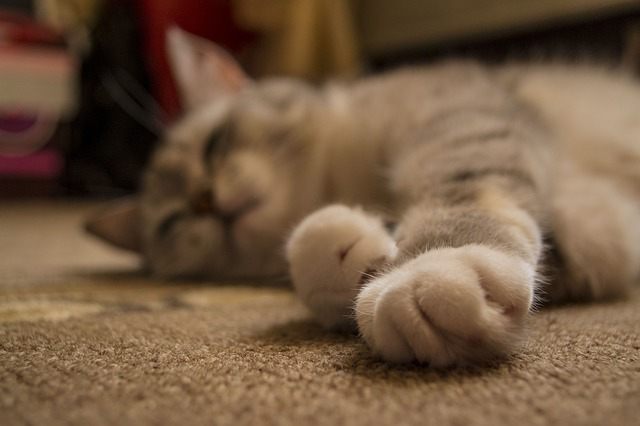
![10 Signs of Depression in Cats [Causes & Tips] Signs of Depression in Cats](https://petcreeks.com/wp-content/uploads/2021/07/Signs-of-Depression-in-Cats.jpg)
